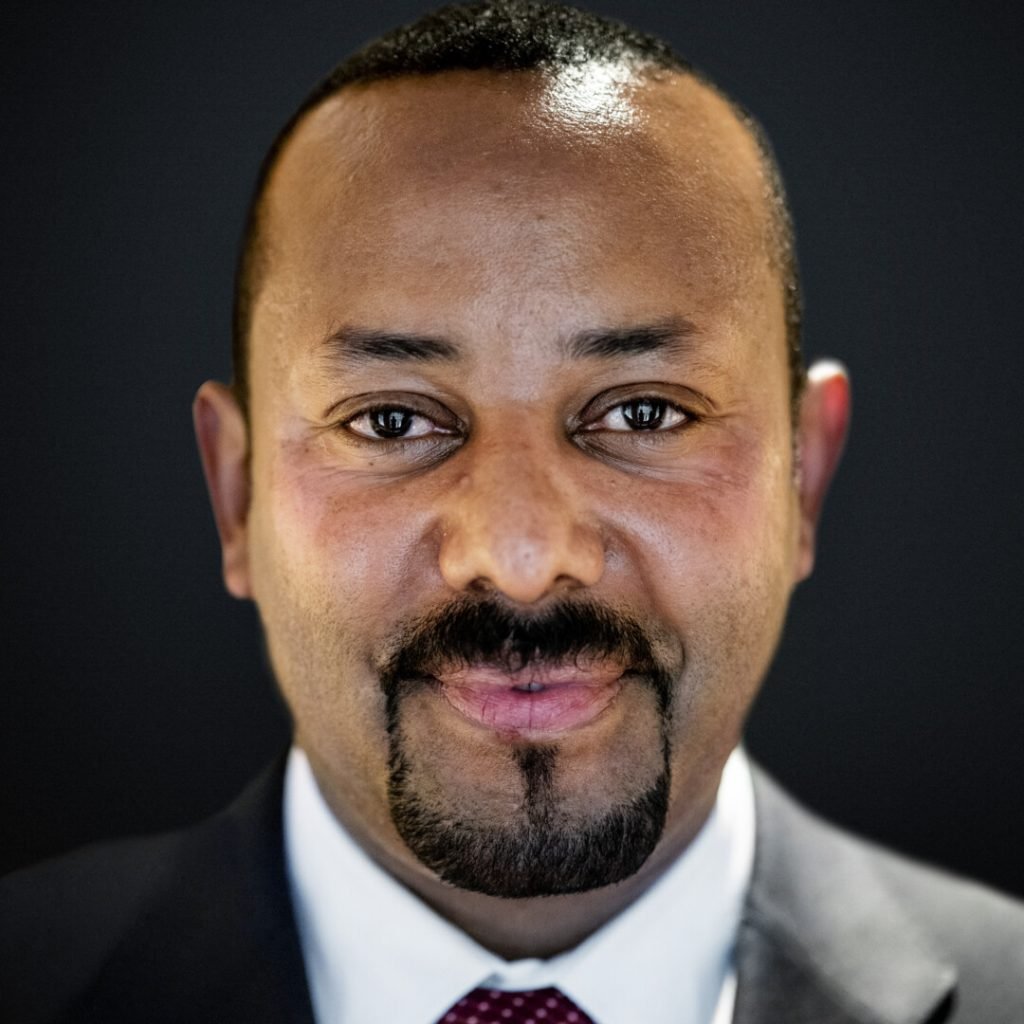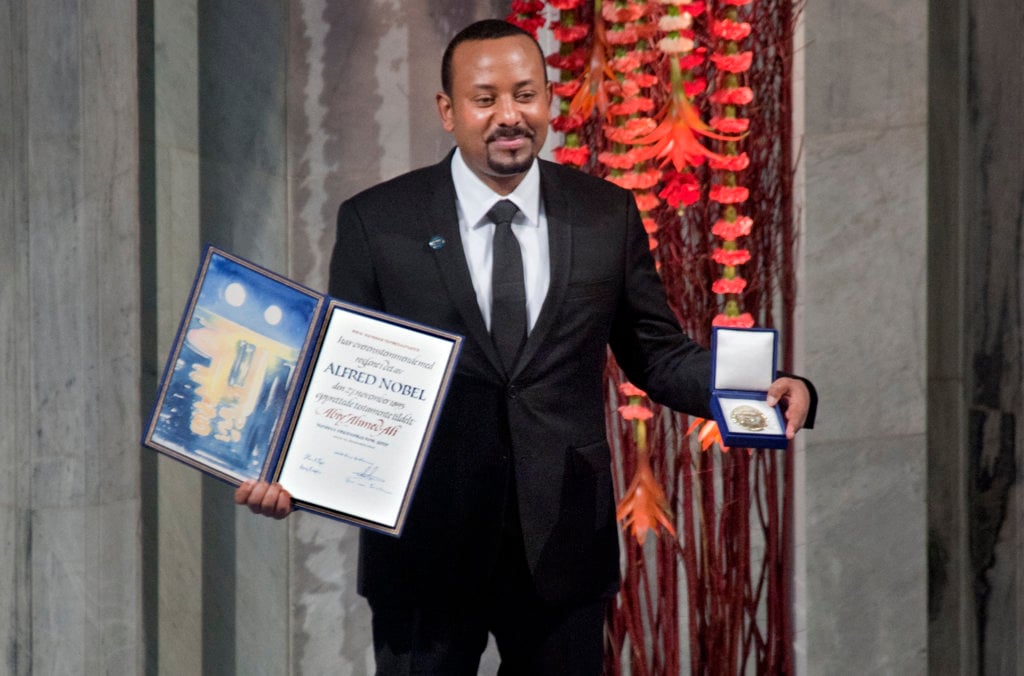Abiy Ahmed Ali
Speed read
Ethiopian Prime Minister Abiy Ahmed Ali was awarded the Nobel Peace Prize for his efforts to achieve peace and international cooperation, and in particular for his decisive initiative to resolve the border conflict with neighbouring Eritrea.

Full name: Abiy Ahmed Ali
Born: 15 August 1976, Beshasha, Ethiopia
Role: Prime Minister of Ethiopia
Date awarded: 11 October 2019
Leadership for peace
When Abiy Ahmed Ali became Ethiopia’s prime minister in 2018, his first priority was to work for peace with neighbouring Eritrea. By that point, Ethiopia and Eritrea had been in a state of conflict for 20 years. In June 2018, Abiy Ahmed made a decision that paved the way for peace – he was willing to hand the disputed border city of Badme to Eritrea. In July, he met the president of Eritrea and they signed an agreement that would form the basis for peace between the two countries. In awarding the Nobel Peace Prize to Abiy Ahmed Ali, the Norwegian Nobel Committee said that it: “hopes the peace agreement will help to bring about positive change for the entire populations of Ethiopia and Eritrea.”
"The Norwegian Nobel Committee believes it is now that Abiy Ahmed’s efforts deserve recognition and need encouragement."
- The Norwegian Nobel Committee, Oslo, 11 October 2019.

"In Ethiopian history, we have never seen a leader like him."
- Feyisa Lilesa, Ethiopian marathon champion, 23 April 2019.
| Ethiopia Capital: Addis Ababa Bordered by: Eritrea, Djibouti, Somalia, Kenya, Sudan and South Sudan. Population: The world’s most populous land-locked country. Its population of almost 100 million comprises over 80 ethnic groups, the largest of which are the Oromo and the Amhara. |
Important democratic reforms
Just a few months after taking office, Abiy had implemented several reforms in support of democracy and freedom of expression. Thousands of political prisoners were granted amnesty, and censorship of the press was abolished. Abiy legalised political groups that had previously been criminalised. He also dismissed leaders suspected of corruption. Women were given greater influence in society. Women make up half of the current government. Abiy has promised to hold free and fair elections. Although much remains to be done, these changes give hope for the future.
"Democracy is unthinkable without freedom."
- Abiy Ahmed Ali, inaugural speech, 2 April 2018.
Building bridges between neighbours
Abiy Ahmed has also tried to resolve conflicts between Ethiopia’s neighbours. He facilitated the resumption of dialogue between Eritrea and Djibouti after a long period of disagreement. He mediated in a maritime border dispute between Somalia and Kenya. He has also contributed to progress in peace talks in Sudan: This summer, the two sides presented proposals for a new constitution, which has led to new hope for peace in Sudan. In its announcement of the peace prize, the Norwegian Nobel Committee underlined Abiy’s efforts for peace in East and Northeast Africa.
"This is great news for Africa, and for East Africa where peace is a very expensive commodity, and I am sure it will give energy to realise peace in my region."
- Abiy Ahmed Ali, interview with BBC after the Nobel Peace Prize announcement, 11 October 2019.
A unifying peace prize laureate
Ethiopia is a vast country of more than 100 million inhabitants and many different ethnic and linguistic groups. Many Ethiopians are internally displaced, and many have fled to Ethiopia from neighbouring countries. Abiy has tried to promote reconciliation and cohesion between ethnic groups, but much remains to be done. In 2018, tensions between ethnic groups re-escalated. Abiy himself has a mixed background: His father was a Muslim from the Oromia Region, while his mother was an Orthodox Christian Amhara. In this way, Abiy himself represents the ethnic diversity in his homeland.
Learn more
Abiy Ahmed was born in Beshasha, Ethiopia. As a young man, Abiy Ahmed participated in the armed struggle against Mengistu’s communist regime in Ethiopia and later served in the Ethiopian military ...
Disclaimer: Every effort has been made by the publisher to credit organisations and individuals with regard to the supply of photographs. Please notify the publishers regarding corrections.
Nobel Prizes and laureates
Six prizes were awarded for achievements that have conferred the greatest benefit to humankind. The 12 laureates' work and discoveries range from proteins' structures and machine learning to fighting for a world free of nuclear weapons.
See them all presented here.
